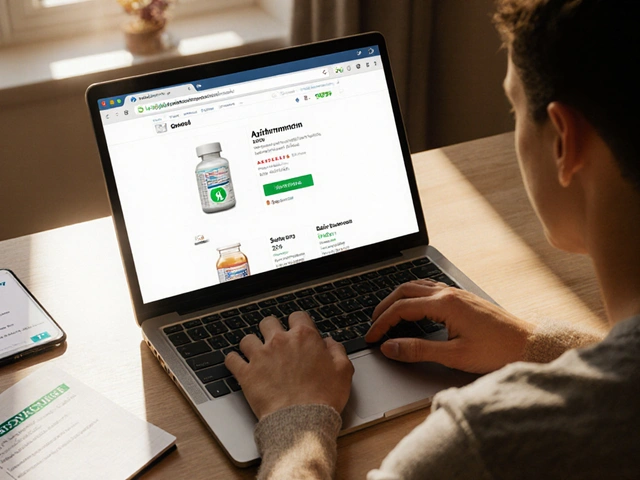Azulfidine (sulfasalazine): What it’s for and how to use it
Azulfidine is the brand name for sulfasalazine. Doctors commonly prescribe it for ulcerative colitis and some forms of rheumatoid arthritis. It helps reduce inflammation in the gut and joints so symptoms like pain, stiffness, and diarrhea improve. You won’t feel results immediately; it can take weeks to work, so sticking with the plan matters.
Before you start, tell your doctor about allergies (especially to sulfa drugs), liver or kidney problems, blood disorders, or if you’re pregnant or breastfeeding. Bring up any other medicines you take — some can change how Azulfidine works.
How to take Azulfidine
Take Azulfidine exactly as your doctor tells you. It often comes as tablets or delayed-release tablets. Many people start with a low dose that increases over several days to reduce stomach upset. Take it with food or a full glass of water to cut down nausea. Try to take doses at the same times each day to keep levels steady.
If you miss a dose, take it as soon as you remember unless it's nearly time for the next dose. Don’t double up. If you stop because you feel better, check with your doctor first — stopping suddenly can cause symptoms to return.
Side effects, safety checks and interactions
Common side effects include nausea, headache, loss of appetite, and orange-yellow urine or skin tint — that color change is harmless but can surprise you. Less common but serious problems include severe rash, persistent fever, sore throat, bruising, yellowing of the skin or eyes (signs of liver trouble), and dark urine. If you notice these, contact a doctor right away.
Azulfidine can affect blood counts and liver tests. Your doctor will likely order blood work before you start and then again every few weeks at first, then less often once things are stable. Don’t skip those tests.
Interactions matter: other blood thinners, certain antibiotics, and medicines for gout or diabetes can interact. Also avoid taking high doses of folic acid supplements without checking — sulfasalazine can lower folate levels, and your doctor may prescribe folic acid alongside it.
Pregnancy and breastfeeding: Azulfidine is sometimes used during pregnancy for inflammatory bowel disease when benefits outweigh risks. Discuss the risks and alternatives with your doctor. If you breastfeed, talk to your prescriber — small amounts pass into breast milk.
Storage and practical tips: keep tablets in a cool, dry place away from children. If you experience severe side effects, new unexplained symptoms, or signs of infection (fever, sore throat), seek medical help. Keep a list of your medicines and bring it to appointments.
Have questions while taking Azulfidine? Ask your pharmacist or doctor. They can explain dosing schedules, routine tests, and tips to reduce side effects so you can stay on track.
Your Complete Guide to Buying Azulfidine Safely Online in 2025
Learn how and where to buy Azulfidine online in 2025: tips for safe purchase, how to choose a legit pharmacy, prices, useful facts, and ordering tricks.
View More




